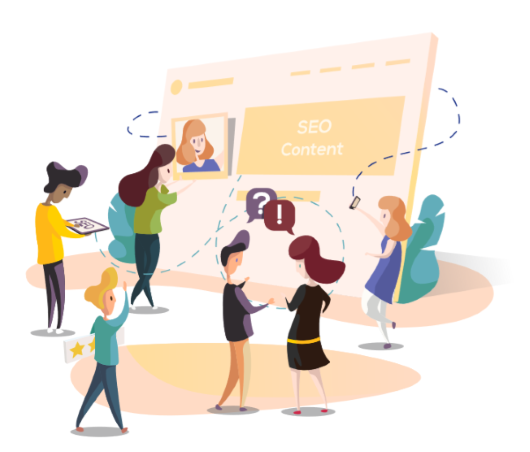If you're a sneaker fan, The Sole Supplier is one of the best online destinations in the UK. Over 3 million people every month rely on the platform to find their next best pair of footwear. They're also a prime example of how community building can generate brand credibility and customer engagement.
I got to sit down with George Sullivan, founder and CEO of The Sole Supplier, who had great advice for anyone building a brand community right now.
Watch the full interview
Interview Transcript
- How The Sole Supplier got started with community
- Can running a resell community hurt your existing business?
- COVID-19 impact
- Ressources + value tracking
- Hiring a community manager: what to look for
- Community tech stack: integrating community on your website
- In-house or third party platform?
- Tips for starting out with community
How did you get the idea for The Sole Supplier?
George: Around 7 to 9 years ago, I really got into collecting trainers. People collect watches or bags. I got the bug for collecting trainers and some of the trainers I was collecting were worth more than what you buy them for.
The casual trainer market is going to be worth over a hundred billion soon, and the secondary trainer market is now worth something like 10 billion. Huge markets.
The Sole Supplier came from me wanting to help people find out where they could buy shoes to collect and resell. I created the website off the back of knowledge I had from books and my experience in an SEO digital agency which I combined with my love of trainers.
Why did you get started with community?
George: About 9 months after launching the website, we created The Sole Supplier Facebook group. Now we have two with thousands of members. We've had people join the business off the back of those groups that are now full time employees, including our Head of Community Emily Atkins.
The Sole Supplier Rumors and News is where people talk about, as you can imagine, new releases, sneakers they bought, and any cool info they can share. That's where the passion is.
The Sole Supplier Exchange is the buying and selling group. For people who want to sell that new pair of Yeezys because there's a trusted community of people that may buy from them. And people may join that group because you get better prices there than you would from some marketplaces.
Running a resell community, aren't you afraid it could cannibalize part of your business?
George: Not quite because we show you where you can get your shoes at the retail price and provide you the links to buy from them. So the people using our groups probably used The Sole Supplier previously. It doesn't actually interrupt our business model. It's kind of an added service.
And you know what? Even if something like a community does interrupt your business model in the short term, I can guarantee that longterm it will build better authority and engagement.
Quentin: Absolutely, this is a question we often get from our clients and we actually have the same feedback as you. The important thing that you have is the attention of your target groups. And being that close to your customers and understanding what they want longterm has to be a good calculation for any brand.
George: That's exactly what The Sole Supplier community does. That's where they met that person, that's where they got that shoe. It's pure brand affinity.
How has COVID-19 impacted The Sole Supplier community?
George: Engagement has actually been up 40% because people are online and we've just been creating more lighthearted discussions, polls... Just polling the audience, finding out what they like, what they don't like. In times of need, people want authentic voices and you can do that with your community.
Quentin: So like with many other brands, what we've seen is they have had that significant uptick in engagement, because people have more time. And I'm guessing a great way to pass the time when you're locked at home is sharing your passion with other people. Makes sense.
What kind of ressources do you have to run your community?
George: We've got two people dedicated to community in house. Plus a team of moderators closely connected to our in house people.
Quentin: So how do you track the short, mid and long return it generates?
George: You know, I say that you shouldn't always be trying to do things for the short term financial gain. If your instinct is telling you you're connecting with people in the right way, then you should do that. For me, that's community. And it actually feels like we should do more of it. We do measure some stuff like link tracking, but that's not all we use the community for.
Quentin: One thing we often speak about when we talk about community is, sometimes when people go for community, they focus on what their community can give them. But one thing we keep seeing is that any community that works is based on the brand giving first.
George: Definitely.
Who would you hire to run your brand community?
George: Someone who's really empathetic and approachable, who can sense when someone's unhappy or understand there's a bad situation that needs fixing. That's the perfect person to run your community because they understand how to handle disputes. They understand how to appeal to people.
Quentin: We've had a community manager at TokyWoky for many years and I think that is a very accurate description of what she's like. I would say the first quality by far is empathy.
I think the trap would be to hire someone who's more into numbers and tracking. When I see her doing her work, there's a lot of patience in there, a lot of listening. It's specifically a job where you don't have to look exactly at how you're spending your time, but you really have to make sure everyone's happy to some extent.
Beyond social media, what does your community tech stack look like?
George: One of our key developments in the coming six months is integrating community onto our website. We're really excited about that. I can't reveal too much for now but something that a lot of brands miss - including us - is that you've got a great community on, let's say Facebook and Instagram, but where is that on the website? Where is that in the app?
You want to show people when they download our app 'look, our community is thriving'. We're engaging all these people that love sneakers. If you can't see that where it's most important, then you're missing out on all that powerful social proof.
Quentin: You're preaching to the choir on that. I mean, obviously that's the whole goal of our community platforms in general, transforming your website into a social experience, bring that community onto your website.
Reviews is one way you bring your community content onto your website. With a fashion brand we're working with, it's having the community create styles with the brand's catalogue, and displaying those community looks onto product pages. So you see that social proof and inspiration everywhere on their website.
George: Yeah I love that. We have something like that in the pipeline.
Is all of that built in-house? Do you feel your team today can take the website where you want to take it in terms of community?
George: I do. Usually if we've got an idea, we can make that happen in house. Through my experience over the past eight years, I like the control. I think it's more cost effective. There's some great companies I've worked with out of house, don't get me wrong. But I like to keep the tech in house as much as possible.
Quentin: I think that's a good point. When a brand asks us how should they go about building their community, I often end up saying you should go with us and our community platform, unless you've got the tech and the resources in house to build your own.
And you might need consulting. You may need people to help. But a community project is not something you start on day one and then it's on your website and it's done. It's something that's going to keep moving and evolve with your business. So if you actually have that bandwith and expertise in-house, I think it's a good idea.
What advice would you give a brand starting with community?
George: I'd say, if you want more satisfaction and understanding about your product or what makes your business special, and to connect with the people that are part of your products, a community is where it's at.
I see people worried about ressources and how long it would take to launch their brand community. You can set up a Facebook group in five minutes. Those are still very powerfull, especially for beginning communities. And then you get a few moderators from your team to create two posts each a week, which takes twenty minutes. Getting started can be done minimally.
Quentin: When you talk about your moderators, how much time would you say they spend moderating?
George: Not a lot of time to be honest. The community kind of self-moderates. We let it grow organically too. Communities are not meant to be boosted with loads of paid ads. Because then they're going to be full of people that don't really want to be there.
People who come to your community organically, that's where you create authentic interactions. That's where you create value. I've seen businesses launch off the back of communities and I've seen communities launch off the back of businesses.
Quentin: The one everyone's talking about in the beauty industry is Glossier. Founded by someone who started a blog about the beauty industry and shared makeup routines. Next thing you know, five years later, she's built a billion dollar company because they're creating products people actually want, based on what they're hearing from their community.
I think yours and hers are very impressive businesses, with lots more to come. Thanks a lot for your time. As expected, it has been super interesting talking to you again, George.



.jpg?width=800&name=Get%20the%20Community%20playbook%20(1).jpg)

.png)
